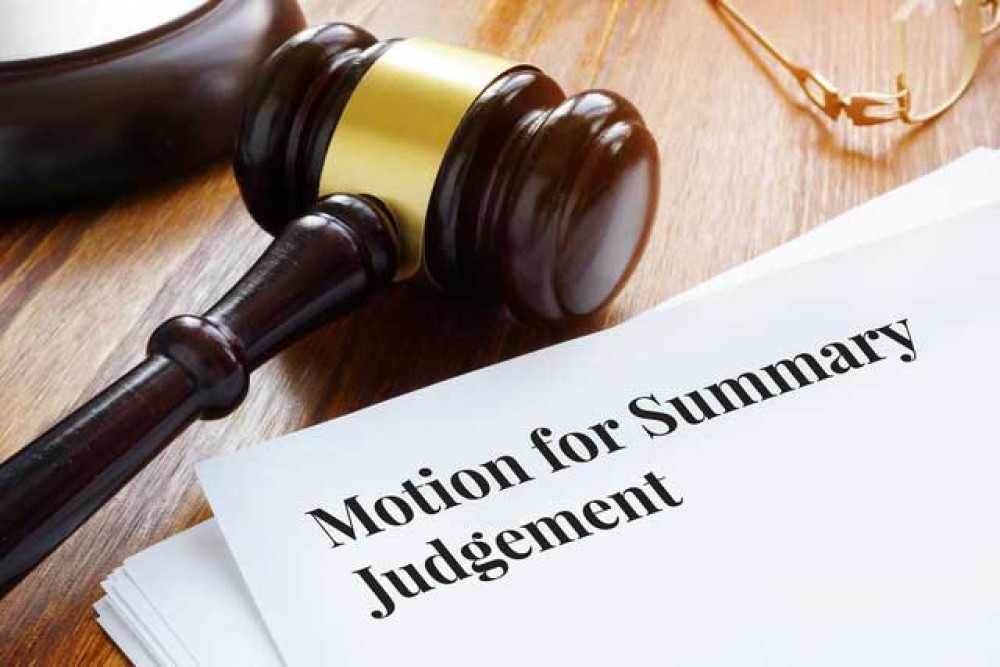Get Your Legal Documents Now!
Whether you are dealing with a complex family matter, facing criminal charges, or navigating the intricacies of business law, our mission is to provide you with comprehensive, compassionate, and expert legal guidance.

Wondering if you can succeed on summary judgment without witness testimony? Learn what types of evidence are acceptable and how to build a winning MSJ with Legal Husk.
Can You Win a Motion for Summary Judgment Without Witness Testimony?
Introduction
In the battle for summary judgment, evidence is everything. But does that always mean live or sworn witness testimony is necessary? Can a party win a motion for summary judgment using only documents, declarations, or other forms of proof?
The short answer: Yes—you can win a motion for summary judgment without traditional witness testimony, but you must replace it with other admissible, persuasive evidence. Courts will not grant summary judgment based on allegations or legal conclusions alone.
In this article, we explore what evidence is required to succeed without witness statements and how to structure your MSJ for maximum effectiveness—even when you don’t have a single deposition or affidavit.
For professionally prepared litigation documents, visit legalhusk.com or legalhusk.com/services/civil-litigation.
What Is a Motion for Summary Judgment?
A motion for summary judgment (MSJ) seeks to resolve part or all of a lawsuit before trial, based on the argument that:
No genuine dispute of material fact exists, and the moving party is entitled to judgment as a matter of law.
This determination is made based on the evidence submitted—which can include:
Do You Need Witness Testimony?
Not Always.
While witness testimony—whether through deposition or affidavit—is often helpful, it is not mandatory.
Courts may grant summary judgment based solely on documentary or undisputed factual evidence, such as:
If these materials establish the legal elements of your claim (or the failure of your opponent’s case), a judge may rule without any sworn testimony.
When Witness Testimony Isn’t Needed
1. Contract Disputes
2. Public Record Cases
3. Defendant’s Own Statements or Admissions
4. No Material Facts in Dispute
Risks of Skipping Witness Testimony
While you can succeed without it, avoiding witness testimony altogether comes with challenges:
What to Use Instead of Witness Testimony
1. Certified or Admissible Documents
2. Discovery Responses
3. Judicial Notice
4. Rule 56(c)(4) Declarations
How to Strengthen a Motion Without Witnesses
Can the Opposing Party Use Lack of Testimony Against You?
Yes. The opposing party may argue:
But these challenges are not fatal if your evidence is clear, consistent, and admissible.
When Testimony May Be Required
Even strong documentary evidence may fall short in cases involving:
In these cases, the court may deny summary judgment and allow a jury to weigh testimony.
How Legal Husk Helps You Win Without Witnesses
At Legal Husk, we help you:
📌 Get expert drafting and litigation tools at:
Final Thoughts
Yes, you can win a motion for summary judgment without traditional witness testimony—but only if your written evidence is strong, relevant, and admissible. Don’t rely on assumptions. Use the tools you have and frame your case with clarity.
📩 Need help filing your MSJ without witness support? Visit Legal Husk to purchase professionally drafted legal documents that help you win on the record.
Whether you are dealing with a complex family matter, facing criminal charges, or navigating the intricacies of business law, our mission is to provide you with comprehensive, compassionate, and expert legal guidance.
Comments